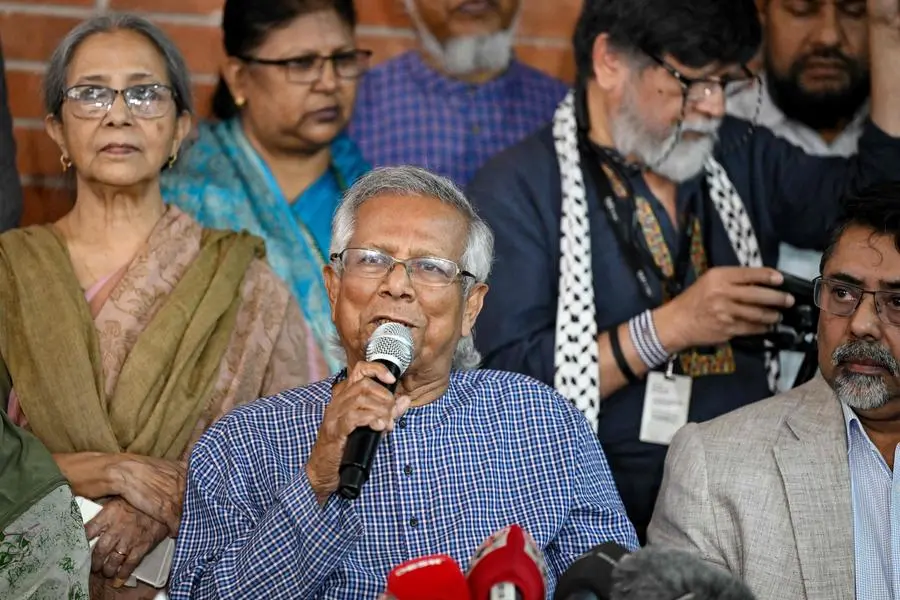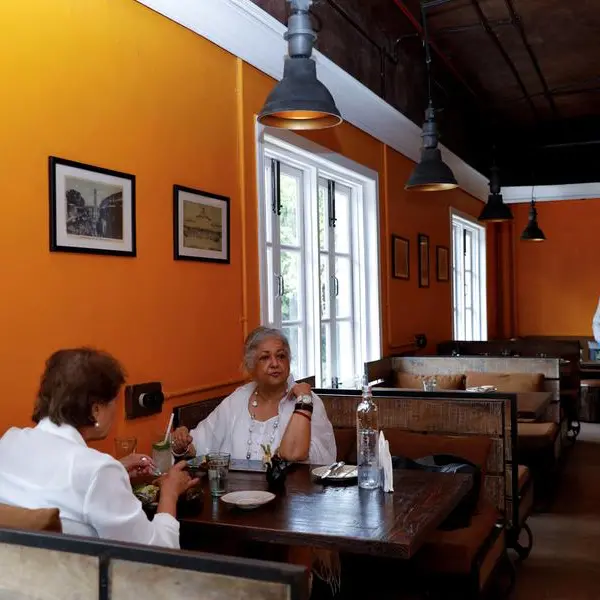PHOTO
Bangladesh Nobel peace laureate Muhammad Yunus said Thursday that several of his firms were "forcefully" taken over, weeks after his conviction in a criminal case his supporters say was politically motivated.
Yunus, 83, is credited with lifting millions out of poverty with his pioneering microfinance bank but has earned the enmity of long-time Prime Minister Sheikh Hasina, who has accused him of "sucking blood" from the poor.
He told a press conference that on Monday, a group of "outsiders" had come to a building housing several of his companies, taking over offices and locking out staff.
"Some people came and took control forcefully," he said, without giving further details on those involved.
"We're in deep trouble. It's a big disaster," he added. "They are trying to run the companies according to their rules."
Yunus said police refused to register a criminal case regarding the apparent takeover.
"They find no problems" with the occupation, he said.
Dozens of people who claimed they were supporters of the ruling Awami League stood at the gates of the building earlier on Thursday blocking entry to staff.
"They did not allow us to enter the building," Mainul Hasan, a general manager of one of the Yunus-chaired firms, told AFP.
Some people entered the building claiming that they were the new directors of several of the firms, existing employees said.
Last month, Yunus and three colleagues from Grameen Telecom, one of the firms he founded, were sentenced to jail for six months after they were found guilty of violating labour laws.
All four deny the charges, which supporters and rights groups said were politically motivated, and have been bailed pending appeal.
Yunus is facing more than 100 other charges over labour law violations and alleged graft.
- 'Continuous judicial harassment' -
Around 160 global figures, including former US president Barack Obama and ex-UN secretary-general Ban Ki-moon, published a joint letter last year denouncing "continuous judicial harassment" of Yunus.
The signatories, including more than 100 of his fellow Nobel laureates, said they feared for "his safety and freedom".
Critics accuse Bangladeshi courts of rubber-stamping decisions made by Hasina's government, which won re-election last month in a vote without genuine opposition parties.
Faruq Faisel of local rights group Ain o Salish Kendra told AFP that he and his colleagues were "really shocked" at the latest move against Yunus.
"These incidents are yet another example that the justice system is not independent in Bangladesh. Here the justice system is controlled by the powerful people," he said.
Her administration has been increasingly firm in its crackdown on political dissent, and Yunus's popularity among the Bangladeshi public has for years earmarked him as a potential rival.





















